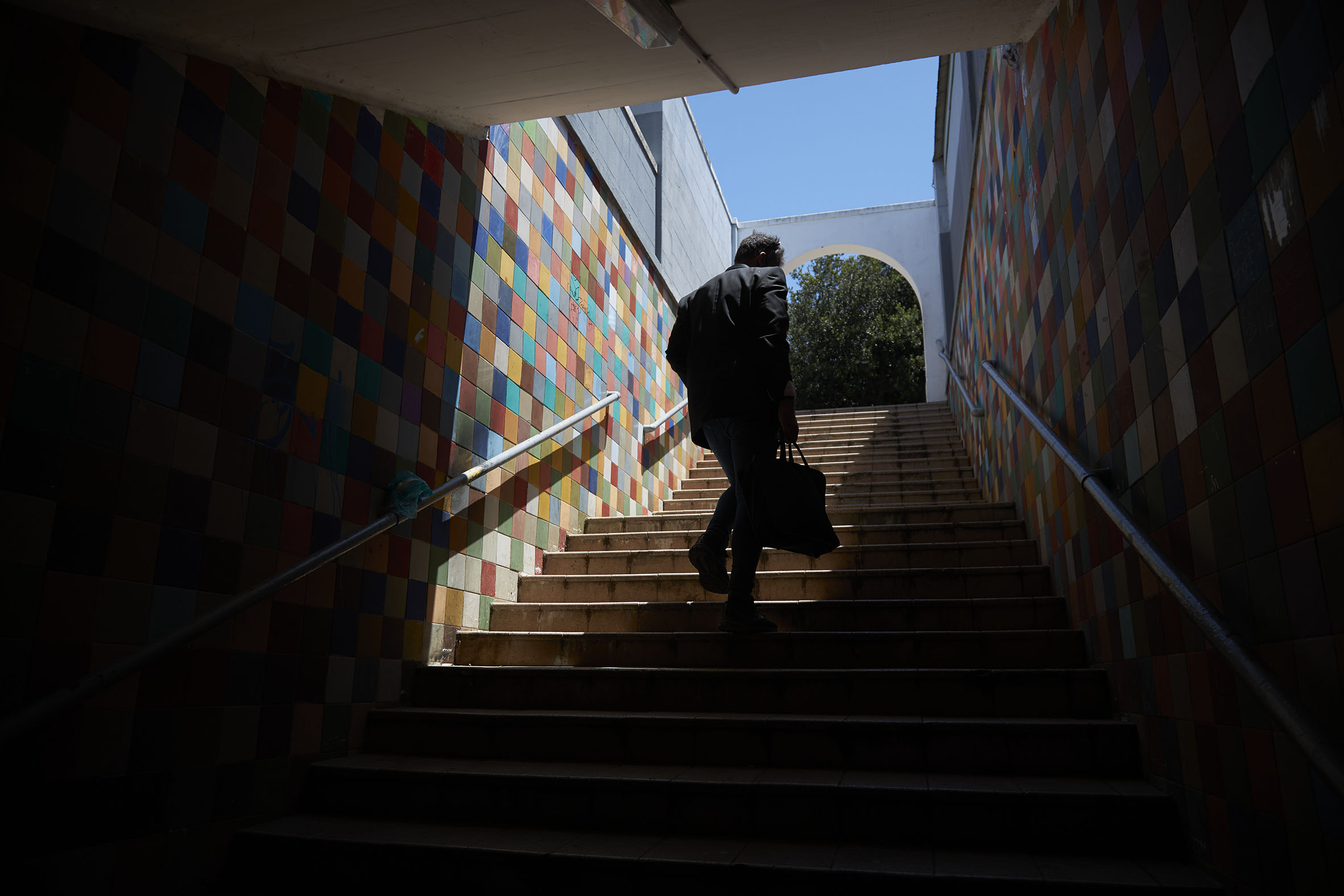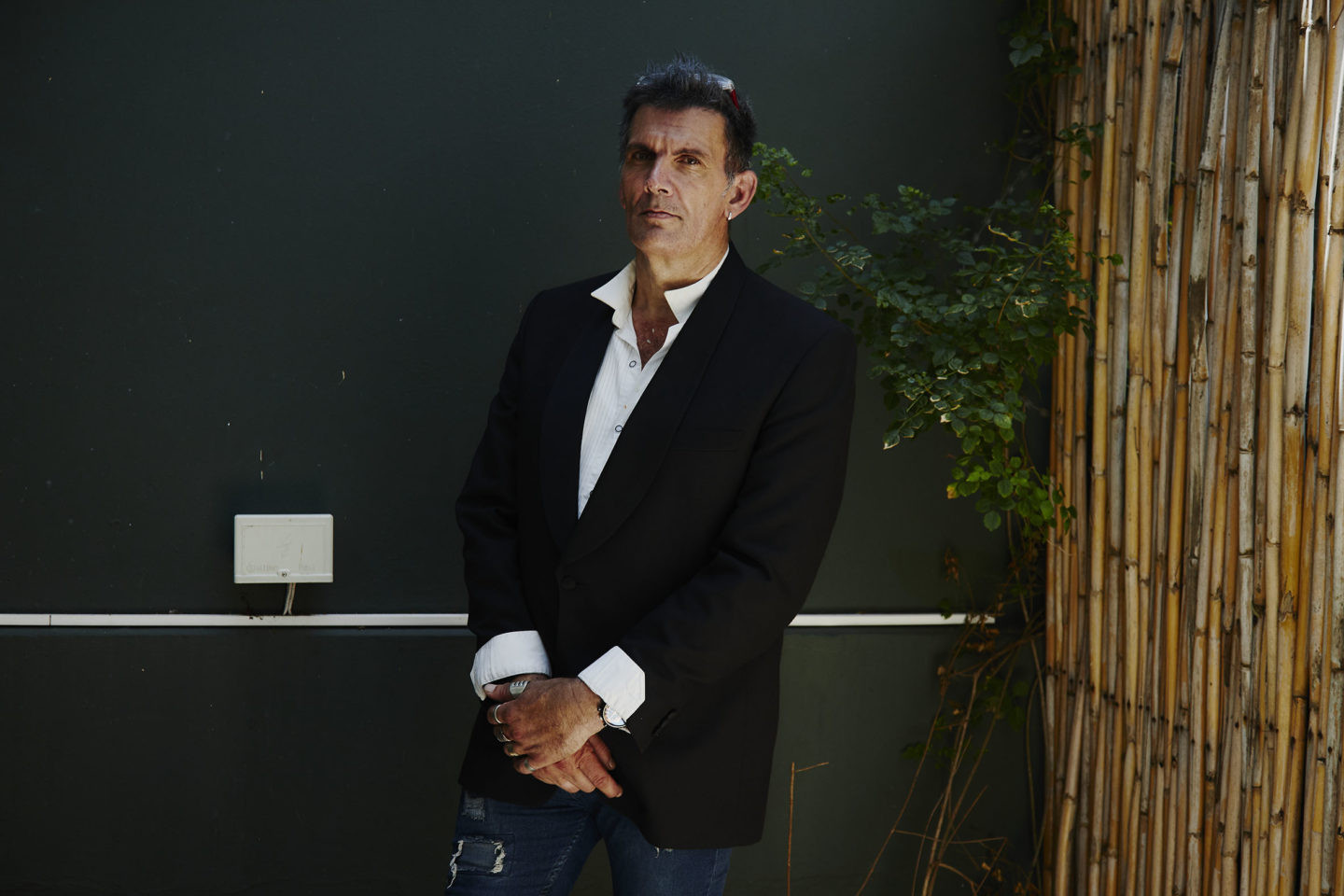Vital to change ‘misconceptions’ about the homeless
Hearings will soon be held to get first-hand accounts of what it’s like living rough in Cape Town, where law enforcement officers are accused of brutality.
Author:
27 January 2022

The murder of Dumisani Joxo, a street dweller in Rondebosch who died after allegedly being shot by a City of Cape Town law enforcement officer, has prompted the South African Human Rights Commisson (SAHRC) to institute public hearings into the mistreatment of homeless people.
The shooting as well as new municipal by-laws implemented in Cape Town in September 2021 have raised widespread concern among homeless people and those who advocate on their behalf.
Matthew du Plessis, a senior legal officer in the SAHRC’s Cape Town office, says the commission has noticed a worrying trend of law enforcement personnel mistreating vulnerable people. This includes brutality against the homeless as well as those who are being evicted from shack settlements and tented communities.
Related article:
Carlos Mesquita, founder of The Rehoming Collective, a non-profit organisation that helps homeless people to rebuild their lives through teaching them skills or finding them work, says the public’s perception of the homeless needs to change.
“I realised last year the challenge is not to change politicians’ ideas, it’s to change the general public. The general public has misconceptions and they believe certain myths and not the truth about homelessness in Cape Town. Because that’s what they’re being fed.”
Understanding the causes
Mesquita, a recovering addict, was homeless for five years after he lost his record company and a R1 million Sea Point apartment. “I wasn’t actually feeling that I was going down towards homelessness,” he said. “Basically I became disillusioned with my life before I became homeless.
“One day I looked at all these gold discs around my office and I realised I actually had a very lonely life. People were in my life for the wrong reasons. Then it became alcohol, gambling, you name it.”
Mesquita says he has never met a homeless person whose first choice is to live on the street. “They are there not out of choice, but out of circumstance. [That] is what people miss.”

Mesquita had his own brush with law enforcement officers while living on the streets in 2017. One morning they took his trolly and started confiscating his possessions.
“I had just bought a new tent that had a built-in mattress. I was very proud of it and a new cellphone, which was inside the tent. I said, please can I get my stuff back? I tried to run to the truck and grab it. They threw me down, opened my eyes and sprayed two full canisters [of pepper spray] into my eyes.”
He points to his cheek, which was fractured in the incident. “This is their boot.”
Not a crime
Before a meeting with the SAHRC after Joxo’s death, housing advocacy group Ndifuna Ukwazi said in a statement that people end up on the streets for many reasons, including poverty, substance abuse and mental health issues. It blamed the City for failing to provide affordable housing and an adequate number of shelter beds.
“Moreover,” it said, “the City’s characterisation of people struggling with homelessness as criminals doesn’t address root causes. Homelessness is not a crime, but rather a result of a state that has failed to meet people’s needs.
“There are no simple solutions to people living on the street, and the City’s insistence on treating people experiencing homelessness as criminals is an ineffective approach targeted only at appeasing ratepayers’ complaints, without finding sustainable and humane solutions to all persons involved.”

Paul Hibbert, a resident of a tented community in the suburb of Sea Point on the Atlantic seaboard, says he ended up on the streets when he came from Saldanha Bay to Cape Town for his mother’s funeral. “My car broke down. Eventually I had to sell my car for nothing,” he said.
Hibbert shares a tent with Charles O’Neil, who was retrenched from a steel factory in Saldanha Bay. “We’ve got no accommodation, no income. We’ve got nothing. It can happen to anyone,” said Hibbert.
A hard life
The residents of the encampment were evicted by law enforcement authorities last year. “They took our things, our IDs got lost,” said Hibbert. “We slept in the rain. Law enforcement, about 10 or 20 cars, was standing here day and night watching us.”
He says he doesn’t understand why his community was targeted. “There’s no trouble here. The police harass us because they are checking for drugs.”
O’Neil makes some money by helping out at a nearby tennis court. But he says adjusting to life on the streets hasn’t been easy. “They take your dignity away. You must fight to get clean and wash yourself, clean clothes and shave.”

David Khumalo, originally from Johannesburg, has been living in the same tented community where Joxo lived until his death. It is situated on a strip of land along the train tracks in Rondebosch, and Khumalo has been there since last year. He says when he came out of prison he found it difficult to get work and eventually ended up in Cape Town.
“It’s not all of us that want to live this life. We once lived a better life, but financially it’s not going [well]. Our parents get retrenched, all those types of things happen. It’s really hard. If we go to the garage, we are only allowed 1.5 litres of water.”
In defence of by-laws
In various statements issued last year, the City of Cape Town said its by-law on streets, public places and noise nuisances “protects the dignity, health and wellbeing of ‘homeless’ persons by enshrining in law the offer of alternative shelter and solutions to help people off the streets sustainably. In this way, the by-law provides for the humane and constitutional enforcement of prohibited conduct in our public places.”
It added: “There can be no reasonable expectation, nor a clear right, for anyone to live unlawfully and permanently in tents in public spaces, and to reserve it for their exclusive use while refusing all offers of social assistance and shelter.”

But Brett Herron, secretary general of the Good party, says the City’s current ways of handling its homelessness problem is unsustainable. “A model that is based on fining, confiscation of belongings, harassment and victimisation is inhumane, lacks compassion and empathy, and will never work.
“In a constitutional democracy, it is also unlawful and I think the City’s leadership is about to find that out when the constitutionality of its by-law will be tested.”
Mesquita says one of the major problems in Cape Town is that there have been no new shelters built since 1994. “We’ve had urbanisation, job losses, we’ve had Covid, yet no new shelters have been built.”
A better approach
He also believes homeless people often avoid shelters because of their conditional approach, especially in terms of the use of drugs. “The model that all the other shelters run is a very old model that’s not used anywhere in the world anymore, and that is that you have to be clean before you get accommodated. It’s virtually impossible to achieve that,” said Mesquita.
The Rehoming Collective believes housing comes before tackling other issues such as drug use and teaching people skills. “We don’t believe in rehab, we believe in harm reduction. Most of the people in our house [in Observatory] are now employed.”
Jonathan Williams, 41, from Mitchells Plain, is a resident at The Rehoming Collective. He ended up on the streets in the CBD because he wanted to get away from gangs.

“In town I met a community that was trying to look after each other, but they were all homeless. I became one of them. When I tried to go back home again it didn’t work out, so I ended up in hospital. I was on my way to the streets again when I was told about this house.
“In this house, with these guys, I learnt to live with people again. Not just me living here, to live with them. They also help me control my mind. Not to go out and [get] revenge. I’m grateful for that. The projects here keep me busy. I’m just thankful for the people,” said Williams.

